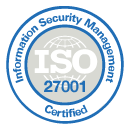TMF Luxembourg
Providing critical compliance and administrative services in Luxembourg and around the world



TMF Luxembourg has a strong international management team of specialists in Fund services, accounting, legal, tax, payroll and HR.
Established in 1977, our Luxembourg office works with businesses of all sizes who wish to set up or expand their business operations in and beyond.
Our team of experienced professionals can help you to incorporate or invest quickly, safely and efficiently.
Office locations

Luxembourg
TMF Luxembourg S.A.
46A, Avenue John F KennedyL-1855
Luxembourg

Local services
In addition to our global portfolio of services, our Luxembourg office provides extra support for specific local requirements related to fund administration.
As an independent third-party fund administrator, our specialist team at TMF Luxembourg is able to provide all services required to administer your fund structure - from setup to liquidation.
We focus on alternative investment funds such as private equity, real estate, infrastructure, private debt and venture capital – whether they invest directly, or indirectly via fund structures.
- Onboarding
- AIFM / ManCo services
- Fund accounting
- Registrar and transfer agency services
- Regulatory reporting
- Corporate secretarial services
- Domiciliation
- FATCA, CRS and tax compliance services
- Depositary services - for closed-end funds and funds closed for redemptions for a minimum of five years, investing in assets other than financial instruments.
Credentials
What sets our services apart?
More than 50 years’ experience helping companies to expand and operate internationally
A global leader and the only provider capable of bundling corporate secretarial, payroll, and accounting services
One firm, with a global master service agreement, consistent service and communication
Our global services
Our people












Country profile
Download our definitive guide to doing business in Luxembourg
Download now Download now


Expand your business efficiently across borders
Get in touch to find out how we can help your organisation grow in a complex world.
Contact us Contact us







